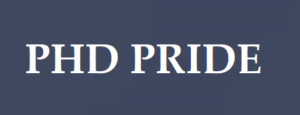Introduction
The digital revolution has transformed the way we live, work, and learn. The academic landscape is no exception, with technology and digital scholarship emerging as key drivers of innovation in research and education. A PhD in Technology and Digital Scholarship is an interdisciplinary program that equips scholars with the knowledge, skills, and expertise to navigate this evolving landscape. In this article, we will delve into the world of Technology and Digital Scholarship, exploring its significance, scope, and career prospects.
What is Technology and Digital Scholarship?

Technology and Digital Scholarship is an interdisciplinary field that examines the intersection of technology, digital media, and scholarly practice. It encompasses various disciplines, including:
- Digital Humanities
- Educational Technology
- Information Studies
- Communication Studies
- Science and Technology Studies
This field investigates how technology shapes knowledge production, dissemination, and consumption. It also explores the potential of digital tools and methods to enhance research, teaching, and learning.
Key Research Areas

A PhD in Technology and Digital Scholarship encompasses a broad range of research areas, including:
- Digital Pedagogy: Investigating effective teaching and learning strategies in digital environments.
- Digital Scholarship: Examining the impact of digital tools and methods on scholarly communication and knowledge production.
- Human-Computer Interaction: Designing and evaluating interfaces to enhance user experience.
- Digital Culture and Society: Analyzing the social, cultural, and economic implications of digital technologies.
- Digital Curation and Preservation: Developing strategies for managing and preserving digital data and artifacts.
- Digital Ethics and Policy: Exploring the ethical and policy implications of digital technologies.
- Digital Research Methods: Developing and applying digital methods for data collection and analysis.
Career Prospects

Graduates with a PhD in Technology and Digital Scholarship can pursue diverse career paths, including:
- Academia: Tenure-track positions in universities, colleges, or research institutes.
- Digital Scholarship Centers: Working in centers focused on digital scholarship, pedagogy, and research.
- Industry: Roles in tech companies, startups, or consulting firms focused on digital innovation.
- Government: Policy and research positions in government agencies or non-profit organizations.
- Libraries and Archives: Leadership positions in digital libraries, archives, and special collections.
- Digital Publishing: Careers in digital publishing, including editing, writing, and content strategy.
- Consulting: Providing expertise on digital strategy, pedagogy, and research methods.
Skills and Competencies

To succeed in a PhD program in Technology and Digital Scholarship, students should possess:
- Technical skills: Proficiency in programming languages, digital tools, and software.
- Research design: Ability to design and conduct research studies.
- Critical thinking: Capacity to analyze complex digital phenomena.
- Communication: Effective writing, presentation, and teaching skills.
- Collaboration: Ability to work in interdisciplinary teams.
- Digital literacy: Familiarity with digital platforms, tools, and methodologies.
Program Structure and Curriculum
A typical PhD program in Technology and Digital Scholarship includes:
- Coursework: Foundations in digital scholarship, research methods, and technical skills.
- Comprehensive exams: Demonstrating expertise in the field.
- Dissertation: Original research contributing to the field.
- Research assistantships: Opportunities for hands-on research experience.
- Professional development: Workshops, conferences, and networking events.
Conclusion
A PhD in Technology and Digital Scholarship offers a unique opportunity to explore the intersection of technology, digital media, and scholarly practice. As technology continues to shape the academic landscape, this field will play an increasingly important role in redefining the future of research and education. If you’re passionate about harnessing the potential of digital technologies to advance knowledge and society, consider pursuing a PhD in Technology and Digital Scholarship.
Additional Resources
For those interested in learning more, here are some additional resources:
- Digital Scholarship Centers: Visit centers like the Digital Scholarship Center at Carnegie Mellon University or the Center for Digital Scholarship at University of California, Berkeley.
- Conferences: Attend conferences like the Digital Humanities Conference or the Association for the Advancement of Computing in Education (AACE) Conference.
- Journals: Explore journals like the Journal of Digital Scholarship in the Humanities or the Journal of Educational Technology Development and Exchange.
- Online Courses: Take online courses on platforms like Coursera, edX, or Udemy to gain foundational knowledge.
References:
Journals
- Journal of Digital Scholarship in the Humanities (Oxford University Press)
- Digital Humanities Quarterly (Alliance of Digital Humanities Organizations)
- Journal of Educational Technology Development and Exchange (IGI Global)
- Computers and Education (Elsevier)
- New Media & Society (Sage Publications)
- Information, Communication & Society (Taylor & Francis)
- Digital Culture & Education (open-access journal)
- Journal of Digital Literacy (University of Alberta)
Books
- “Digital Scholarship” by Martin Weller (Routledge, 2011)
- “The Digital Humanities: A Primer for Students and Scholars” edited by Eileen Gardiner and Ronald Musto (Cambridge University Press, 2015)
- “Digital Humanities Pedagogy: Practices, Principles and Politics” edited by Brett D. Hirsch (Open Book Publishers, 2012)
- “The Handbook of Digital Humanities” edited by Susan Schreibman, Ray Siemens, and John Unsworth (Blackwell, 2004)
- “Digital Research Methods” by Ventura D. Pérez and Víctor M. González (Sage Publications, 2016)
Conferences
- Digital Humanities Conference (annual, Alliance of Digital Humanities Organizations)
- Association for the Advancement of Computing in Education (AACE) Conference (annual)
- International Conference on Digital Society (ICDS, annual)
- European Conference on Digital Humanities (ECDH, biennial)
- Digital Humanities Australasia (biennial)
Online Resources
- Digital Scholarship Center (Carnegie Mellon University)
- Center for Digital Scholarship (University of California, Berkeley)
- Digital Humanities Now (open-access online publication)
- The Digital Humanities Pedagogy Commons (open-access online resource)
- Digital Scholarship in the Humanities (Wiki, Oxford University Press)

